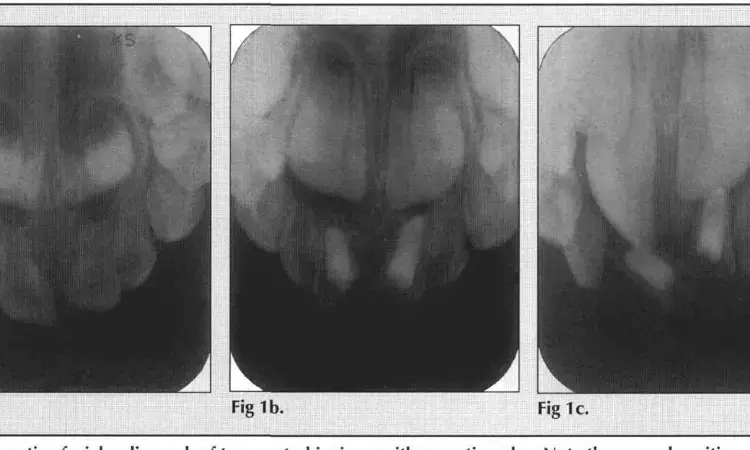- Home
- Medical news & Guidelines
- Anesthesiology
- Cardiology and CTVS
- Critical Care
- Dentistry
- Dermatology
- Diabetes and Endocrinology
- ENT
- Gastroenterology
- Medicine
- Nephrology
- Neurology
- Obstretics-Gynaecology
- Oncology
- Ophthalmology
- Orthopaedics
- Pediatrics-Neonatology
- Psychiatry
- Pulmonology
- Radiology
- Surgery
- Urology
- Laboratory Medicine
- Diet
- Nursing
- Paramedical
- Physiotherapy
- Health news
- Fact Check
- Bone Health Fact Check
- Brain Health Fact Check
- Cancer Related Fact Check
- Child Care Fact Check
- Dental and oral health fact check
- Diabetes and metabolic health fact check
- Diet and Nutrition Fact Check
- Eye and ENT Care Fact Check
- Fitness fact check
- Gut health fact check
- Heart health fact check
- Kidney health fact check
- Medical education fact check
- Men's health fact check
- Respiratory fact check
- Skin and hair care fact check
- Vaccine and Immunization fact check
- Women's health fact check
- AYUSH
- State News
- Andaman and Nicobar Islands
- Andhra Pradesh
- Arunachal Pradesh
- Assam
- Bihar
- Chandigarh
- Chattisgarh
- Dadra and Nagar Haveli
- Daman and Diu
- Delhi
- Goa
- Gujarat
- Haryana
- Himachal Pradesh
- Jammu & Kashmir
- Jharkhand
- Karnataka
- Kerala
- Ladakh
- Lakshadweep
- Madhya Pradesh
- Maharashtra
- Manipur
- Meghalaya
- Mizoram
- Nagaland
- Odisha
- Puducherry
- Punjab
- Rajasthan
- Sikkim
- Tamil Nadu
- Telangana
- Tripura
- Uttar Pradesh
- Uttrakhand
- West Bengal
- Medical Education
- Industry
Pulpectomy treatment of choice for necrotic primary molars compared to extraction

Early childhood caries (ECC) is a prevalent preventable disease that affects almost half of 0-5 Years old children worldwide.Prevalence in Brazil is one of the highest in the world, ranging from 41.6% to 64.8%. Untreated cavitated lesions in primary teeth represent a significant burden and are consistently associated with a negative impact on health-related quality of life (HRQoL) and oral health-related quality of life (OHRQoL) of preschool children and their families.
Pulpectomy may be the treatment of choice for necrotic primary molars compared to extraction suggests a new study published in the Community Dentistry and Oral Epidemiology.
The aim of this randomized clinical trial was to compare the impact of two management options for primary molars with pulp necrosis (pulpectomy or extraction) on children's oral health-related quality of life (OHRQoL).
A total of 100 children aged 3–5 years with at least one necrotic primary molar were selected and randomized into the study groups. The Brazilian version of early childhood oral health impact scale (B-ECOHIS) was completed by the parent proxy reports at baseline and after 4, 8 and 12 months. Differences between the trial groups were assessed through bootstrap linear regression for B-ECOHIS scores, logistic regression for dental pain self-reports and anxiety scores (α = 5%).
Results
The mean (SD) B-ECOHIS scores at baseline and after 12 months were 17.7 (6.5) and 3.0 (4.0) in the pulpectomy group and 18.8 (7.7) and 7.9 (7.7) in the extraction group. Both treatments significantly improved OHRQoL, but tooth extraction group showed higher scores in total B-ECOHIS (p < .001) and most domains, indicating lower OHRQoL. Furthermore, higher anxiety levels were reported for dental extraction compared to pulpectomy (OR = 2.52; p = .008).
Pulpectomy resulted in an improved OHRQoL scores after 12 months when compared to tooth extraction and should be considered as the treatment of choice for necrotic primary molars.
Reference:
Abanto, J, Tsakos, G, Olegário, IC, et al. Impact of pulpectomy versus tooth extraction in children's oral health-related quality of life: A randomized clinical trial. Community Dent Oral Epidemiol. 2023; 00: 1-11. doi:10.1111/cdoe.12895
Dr. Shravani Dali has completed her BDS from Pravara institute of medical sciences, loni. Following which she extensively worked in the healthcare sector for 2+ years. She has been actively involved in writing blogs in field of health and wellness. Currently she is pursuing her Masters of public health-health administration from Tata institute of social sciences. She can be contacted at editorial@medicaldialogues.in.
Dr Kamal Kant Kohli-MBBS, DTCD- a chest specialist with more than 30 years of practice and a flair for writing clinical articles, Dr Kamal Kant Kohli joined Medical Dialogues as a Chief Editor of Medical News. Besides writing articles, as an editor, he proofreads and verifies all the medical content published on Medical Dialogues including those coming from journals, studies,medical conferences,guidelines etc. Email: drkohli@medicaldialogues.in. Contact no. 011-43720751


